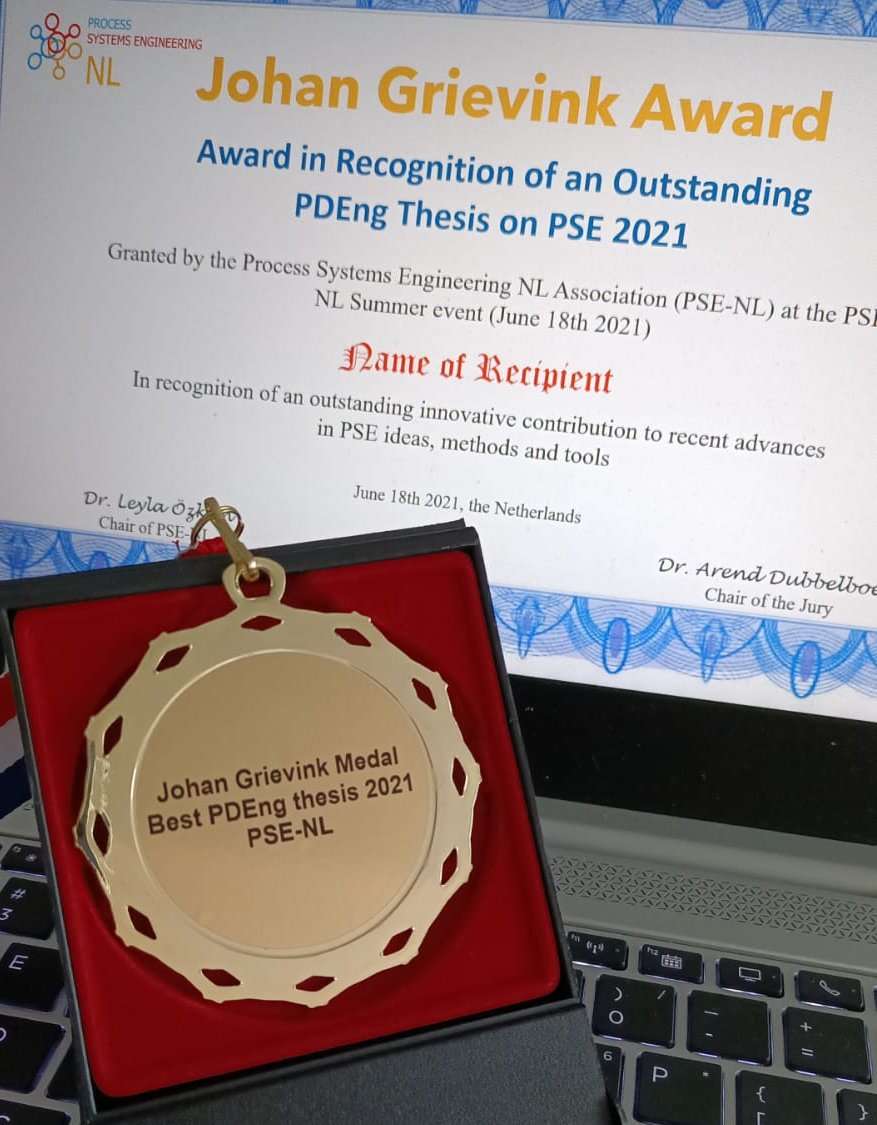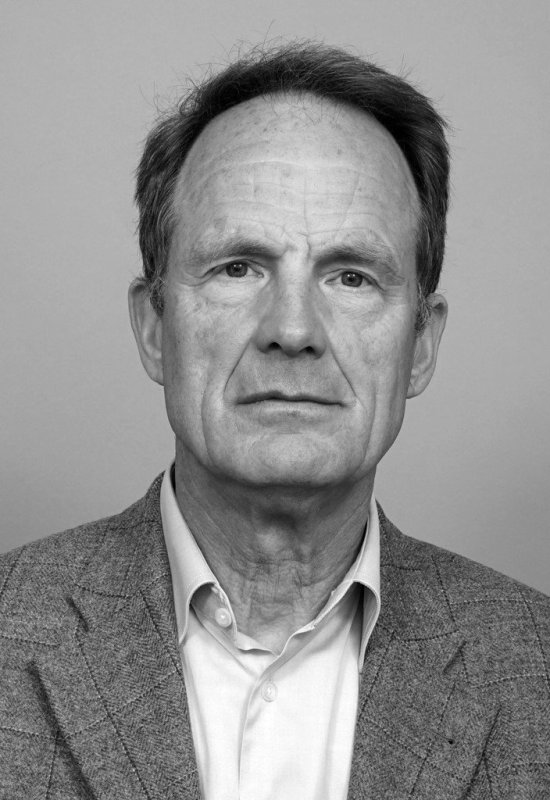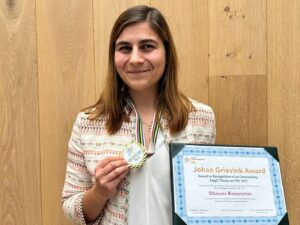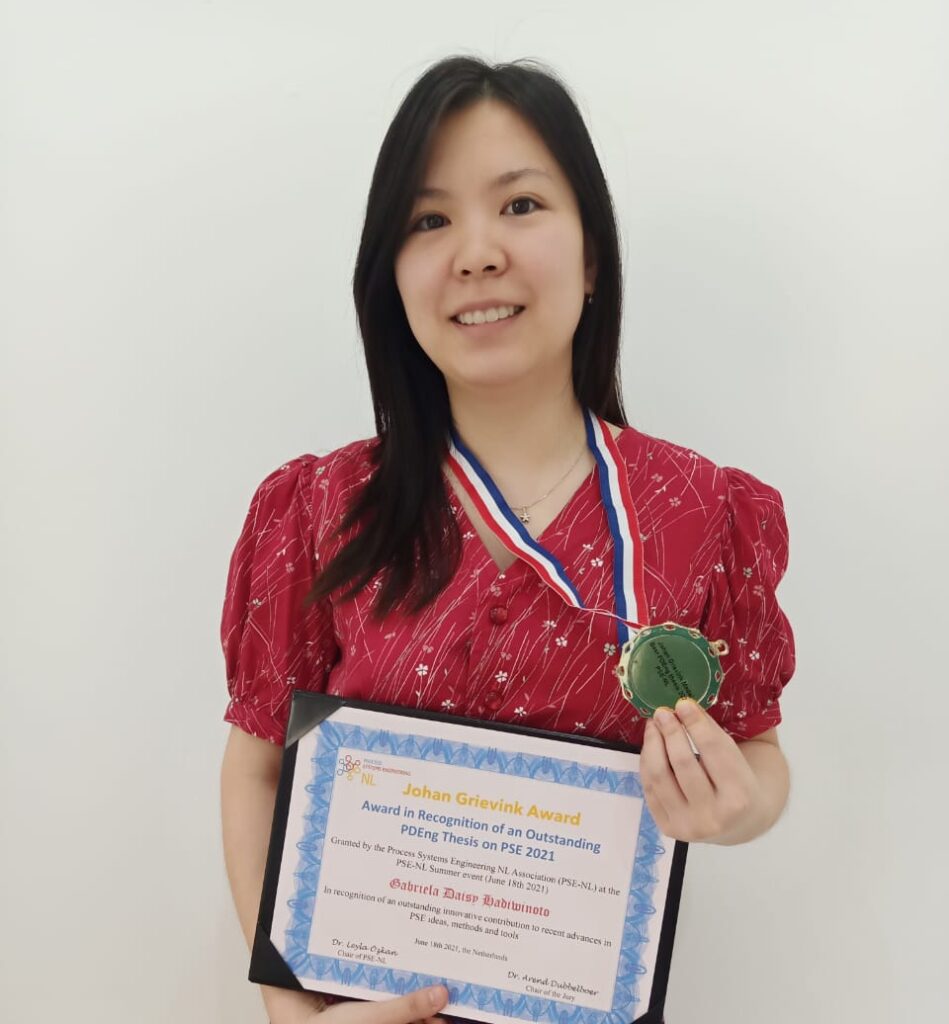
Johan Grievink PSE Award
This award is given for an outstanding (MSc/BSc/PDEng/PhD) thesis on process systems engineering. Read the regulations for more details about the award, eligibility, nomination procedure, supporting documentation, closing date, evaluation procedure and timing. Johan Grievink Award Jury (2021-2022): Meik Franke (Academia), Arend Dubbelboer (PSE-NL) and an industrial specialist.
Deadline: Nominations must be submitted to reach the Award Committee no later than 1st of May in the year when the award is given. Late submissions will not be considered.

Johan Grievink is an emeritus professor of process systems engineering of Delft University. Over the time span of his career Prof. Grievink has played an important role in shaping the field of PSE (process systems engineering) and CAPE (Computer aided process engineering) in the Netherlands, and training and educating many generations of chemical engineering students. His focus has been on interactions between product and process design and design and operability aspects of intensified sustainable processes. His name is nationally and internationally become a synonym to “PSE in the Netherlands”.
Since 2020, the PSE-NL association presents an annual award to recognize an outstanding PDEng/PhD thesis, demonstrating an important contribution to research and/or practice in PSE. This award comprises:
• A plaque/certificate;
• A cash award of € 1000,-
The award will be presented during a dedicated session of the PSE-NL or NPS (The Dutch process technologist conference).

Johan Grievink PSE Award Winner 2023: Athanasia Bampatzeliou (TU Delft)
Atha was a EngD trainee at TU Delft. During her design project, a gel product was developed to control sedimentation in the Rotterdam port area, reducing the need for costly dredging operations that are required to guarantee the maritime traffic within the port. Xanthan gum and Mud were experimentally identified as suitable ingredients for creating a stiff gel barrier in areas with slow currents. Sensitivity analysis showed that these gel barriers could save 1 M€/y and cut 2.4 ktCO2 emissions per year provided that 45% of sediment is prevented, or the lifetime is prolonged. Follow-up trials are conducted by Deltares and Smart Port, assessing the gel’s stability under current hydrodynamic conditions in the port. Recommended future steps are optimizing the barrier’s design and conducting large-scale trials in the port.
Johan Grievink PSE Award Winner 2022: Mehmet Hakan Kandemir (Wageningen UR)
Hakan was a PhD Candidate at Wageningen University, in Biometris Group. He carried out his research at Wetsus, European Centre of Excellence for Sustainable Water Technology. His research was on selective particle separation from suspensions by using ultrasound. This method has already been successfully applied to microscale processes on mostly lab scale, hence the challenging part of his research was to make this technology useful at an industrially relevant scale. By using a combination of engineering, analytical and numerical methods, computer simulations, optimization, and experiments, he demonstrated multiple successful cases that acoustic particle separation can be applied with higher throughput. The outcome of his thesis opens up new possibilities for applications of acoustic particle separation in many industries.

Johan Grievink PSE Award Winner 2021: Gabriela Daisy Hadiwinoto (TU Delft)
Gabriela was a PDEng trainee at TU Delft in Chemical Product Design program. Her PDEng thesis topic was the design of an extended protocol for the treatment of vitamin B12 deficiency. Together with the B12 Institute from Rotterdam, she proposed a vicious cycle which describes several hypotheses on the causes and impacts of B12 cellular inactivity. The topic was a huge challenge for her, as she has little to no background in biochemistry and medical field. With the help of the supervision team from TU Delft and the B12 Institute, she utilized the chemical engineering logics (i.e. breaking down the body function as a series of continuous reactors) to analyze and approach the issues. The outcome of her work is expected to provide a new direction for the research and clinical practice of the B12 deficiency treatment.
